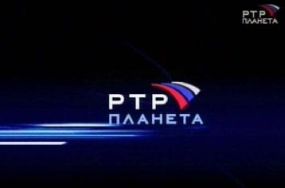Baltic States – CIS, EU – Baltic States, Legislation, Lithuania, Markets and Companies, Russia
International Internet Magazine. Baltic States news & analytics
Monday, 05.05.2025, 08:03
EU Commission has evaluated Lithuania's decision to suspend broadcast of Russian RTR Planeta
 Print version
Print version |
|---|
On 8 April 2015, the Radio and Television Commission of Lithuania (LRTK) made a decision to temporarily suspend broadcast of RTR Planeta in Lithuania. The TV channel is registered in Sweden but programming is produced and disseminated by Russian company VGTRK (All-Russia State Television and Radio Broadcasting Company). All re-broadcasters under Lithuania's jurisdiction had to follow the decision from 13 April through 13 July.
The LRTK determined that in 12 months RTR Planeta had repeatedly incited discord and war, justified military intervention in a sovereign country and published biased information. Therefore, the LRTK appealed to producers, the regulatory authority of Sweden and the European Commission.
A solution between the LRTK and the bodies in question was not reached, whereas violations by RTR Planeta continued. Thus, the LRTK decided to suspend broadcasts of RTR Planeta in Lithuania for 3 months. The decision was based on the Audiovisual Media Services Directive (hereinafter Directive) and the Law on Provision of Information to the Public.
In its findings, the European Commission emphasised that Lithuania provided solid proof about repeated violations by RTR Planeta throughout the period of 12 months. The European Commission acknowledged that obvious and serious violations of the prohibition to incite hatred occurred twice. Moreover, the TV channel did not reach an agreement with the broadcasting member state, e.g. Lithuania. Therefore, measures undertaken by Lithuania were not discriminatory and were proportionate striving to guarantee that providers of audiovisual media services follow Article 6 of the Directive, which prohibits incitement to hatred based on race or nationality. As a result, the freedom of expression had to be restricted in order to ensure effective application of the Directive.








 «The Baltic Course» Is Sold and Stays in Business!
«The Baltic Course» Is Sold and Stays in Business!

